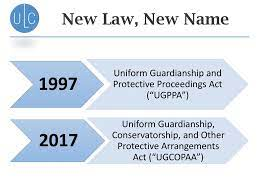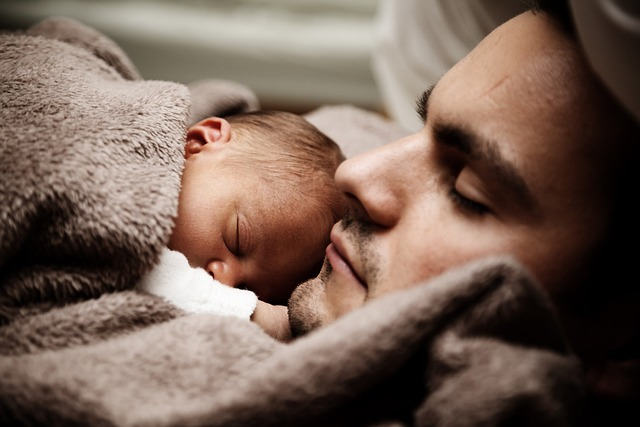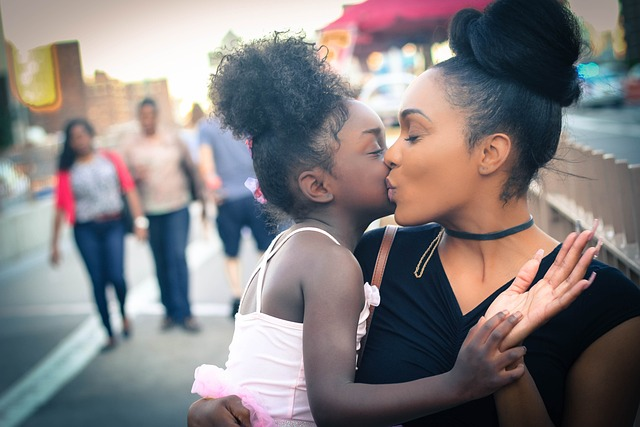How A Court Appoints Guardianship of the Person in California

Guardianship refers to a legal relationship where a court appoints a competent adult (the guardian) to make decisions for an incapacitated adult (the ward). The guardian acts as a substitute decision-maker for the ward’s person/property. Guardianship is state law, though most states model statutes after the Uniform Guardianship Act.
To establish guardianship, one files a petition and the court must find the proposed ward incapacitated. The court determines guardian powers/duties and limitations based on the ward’s needs. Guardians must act in the ward’s interest under court monitoring. Laws vary by state, so research applicable laws.
The Uniform Guardianship and Protective Proceedings Act
The Uniform Guardianship and Protective Proceedings Act or the UGPPA provided an important model for states to reform their outdated, problematic guardianship laws. It reoriented guardianship towards the human rights and dignity of those deemed incapacitated. Since its approval, the UGPPA has influenced guardianship statutes across the country.
UGPPA Core
At the core of the Uniform Guardianship and Protective Proceedings Act (UGPPA) is the well-being and protection of society’s most vulnerable members – minors and incapacitated adults. While guardianship necessarily involves a legal process, the emphasis should always remain on the humanity and dignity of the individuals involved.
Guardianship provides a crucial safety net for minors who have lost their parents or adults who can no longer care for themselves due to disability or diminished capacity. It allows for surrogate decision-making when an individual cannot advocate for themselves. The UGPPA recognizes that removing rights and appointing a guardian is a profound intervention that should not be taken lightly. The Act establishes robust requirements to balance the need for protection with individual rights and autonomy.

The UGPPA insists that guardianship should not be imposed without first considering less restrictive alternatives. If guardianship is deemed essential, the guardian owes a duty of care and must act in the best interest of the incapacitated person or child. Courts are granted oversight to prevent abuse and regularly review the ongoing need for guardianship. At all times, the unique needs, preferences, and values of the individual under guardianship must be considered. Even when incapable of directing their own lives, their humanity matters.
Due Process in Probate Court
By upholding due process, outlining guardian responsibilities, and granting courts supervisory powers, the UGPPA aims to safeguard vulnerable individuals from exploitation. Just as importantly, it preserves their dignity. Guardianship is not only a legal function but also a human one, with people’s lives, interests, and care at the heart of each case. The UGPPA maintains this delicate balance.
Why Legal Guardianship is Needed
The following story illustrates the need why legal guardianship can be granted:
Elizabeth’s & Martha’s Challenge.
Elizabeth first noticed her mother Martha’s “forgetfulness,” but she didn’t think much of it. But as months passed, it was clear Martha’s memory problems were progressing. She would get lost driving familiar routes, forget to pay bills, and make poor financial decisions. Elizabeth realized her mother’s dementia had impaired her ability to care for herself. It broke her heart to see her mother decline this way, she knew action must be taken for Martha’s safety and well-being. After consulting with Martha’s doctor and a social worker, Elizabeth petitioned the court to be appointed as guardian for her mother.
The judge could see Martha was no longer able to handle her own healthcare and finances. He officially named Elizabeth as Martha’s legal guardian, giving Elizabeth responsibility for her mother’s basic needs and livelihood. Though the process was emotional, Elizabeth was relieved guardianship allowed her to protect her mother. She could ensure Martha received proper medical treatment and that her finances were managed responsibly. Elizabeth made care decisions that aligned with her mother’s wishes, always preserving Martha’s dignity.
Guardianship, when carried out compassionately, can be a lifeline for vulnerable elders. It allows loved ones to step in and care for those who can no longer care for themselves. With legal authority, devoted family guardians can now watch over and safeguard those who once watched over them.
When Parents Falter, Guardians Provide: Kalia’s Story
When Joan’s substance abuse and mental health issues spiraled out of control, 13-year-old Kalia’s wellbeing was at risk. Joan’s addiction and self-harming behaviors created an unstable, neglected home environment for Kalia.

Kalia’s father Miguel knew he had to take action to protect his daughter. Though it pained him Miguel petitioned the court to be appointed Kalia’s legal guardian.
The judge agreed Joan was not capable of providing adequate care and supervision at this time. Guardianship was deemed essential to shield Kalia from further harm. Miguel was named Kalia’s guardian, allowing him to make all legal, medical, and educational decisions for her. Though Migel wished Kalia’s mother could be there for her, he was relieved guardianship allowed him to provide the stable, nurturing home Kalia deserved. She was now shielded from the chaos of addiction.
When parental struggles jeopardize a child’s welfare, guardianship provides a refuge. Caring guardians can step in to make decisions in the child’s best interest. Kalia finally had the safety and stability she needed under her father’s guardianship.
What is Guardianship in California
Like many other states in our country guardianship is determined for minor children. This is a legal process in California where a person or organization is given physical custody of a child (under 18) or authority over an adult who is unable to care for themselves. Too often this is a very contested area in dissolving relationships of unmarried and married people. It is best when the parents keep the emotions and the dynamic changes of the minor child into utmost consideration.
Minor Guardian’s Responsibilities
Probate guardianship is often court-appointed for minor children. These guardians have the responsibility for the child’s care, custody, and control. They can make decisions about education, medical treatment, and general welfare. A guardian may be a relative, family friend, or other adult the court finds suitable. The child’s parents may still have visitation or other rights depending on the situation. The court appoints establishing the legal relationship between the guardian and the minor child.
Adult Guardianship
For an adult, a guardian makes decisions about living arrangements, medical care, finances, etc. if the adult is deemed incapacitated. The court will look at evidence like medical records and testimony to determine incapacity. Guardianship of an adult should be a last resort if no other options like advanced directives exist.

Guardian’s Responsibilities for Minor Children
A guardian has the responsibility for the child’s care, custody, and control. They can make decisions about education, medical treatment, and general welfare. A guardian may be a relative, family friend, or other adult the court finds suitable. The child’s parents may still have visitation or other rights depending on the situation.
Day-to-Day Legal Guardianship
The guardian is responsible for the minor’s day-to-day care and supervises the child’s activities and relationships. The guardian makes major decisions about the child’s education, including school choice and access to special services. Healthcare decisions are also entrusted to the guardian, who manages medical needs and insurance. A guardian assumes many parental responsibilities they must facilitate court-ordered visitation and may allow additional visits they deem appropriate.
Selecting a Guardian for an Adult
For an adult, a guardian makes decisions about living arrangements, medical care, finances, etc. if the adult is deemed incapacitated. The court will look at evidence like medical records and testimony to determine incapacity. Guardianship of an adult should be a last resort if no other options like advanced directives exist.
Legal Scrutiny
The court will look closely at the character and qualifications of a proposed guardian for an incapacitated adult. Their skills, relationship with the ward, and ability to fulfill duties will be examined. Background checks for criminal history and credit are standard.
Family Guardian
Family members are often selected but must demonstrate their fitness and lack of conflict of interest. If no family is suitable, a professional or agency may be appointed. Whoever is chosen should respect the values and preferences of the ward.
Guardian’s Ongoing Responsibilities
Guardians must participate in ongoing education about their duties and related issues like disability rights or aging. They must be aware of and avoid any conflicts of interest between their interests and the wards. Accounts and reports to the court about the ward’s status are typically required.
Adaptability and Flexibility
Guardianship should adapt to the circumstances of the ward. Some wards may regain certain capacities, allowing the guardian to scale back involvement. Changes in living situations or relationships may also warrant adjusting the guardianship terms. Above all, the well-being of the ward is the guardian’s priority.
Establishing Guardianship in California
To establish guardianship in California, a petition must be filed in the superior court where the proposed ward resides. The petitioner must submit information on the relationship and need. A hearing will be held for a judge to evaluate necessity before approving or denying. ward (minor or adult) resides. The petitioner must submit information about the relationship with the proposed ward and why guardianship is needed. A hearing will be held for a judge to evaluate the necessity of guardianship before approving or denying the petition.
Court Monitoring of Guardianship of the Person
Guardians in California are monitored by the court and must submit ongoing reports about the status of the ward. Guardianship can be terminated by the court if circumstances change, like a child turning 18 or an adult regaining capacity. Courts strive to protect the best interests of the ward in guardianship proceedings. They must submit ongoing reports about the status of the ward. Guardianship can be terminated by the court if circumstances change, like a child turning 18 or an adult regaining capacity.
Petitioning for Legal Guardian
The petitioner must clearly demonstrate to the court why guardianship is needed and how they are qualified to act as guardians. Supporting evidence like medical reports or declarations from those familiar with the ward’s circumstances are typically provided. The proposed guardian’s background is closely examined to ensure suitability.
The judge considers all evidence and testimony before deciding whether to establish guardianship. They determine the powers granted to the guardian and may limit authority or require ongoing supervision. The goal is always to protect the rights and interests of the ward.
Court Ordered Guardianship Reporting
Guardians must submit regular status reports about the ward’s health, safety, and well-being. The court reviews these closely to spot any causes for concern. Annual accountings of the ward’s finances are typically required in guardianships over the estate. The court can remove guardians who fail to fulfill duties. Courts are cautious in terminating guardianships to verify incapacity no longer exists or an adult ward requests termination. The welfare of the ward is central throughout. Petitioners for a child’s legal guardian are often ordered by the court too. This is necessary when a child’s parent(s) are unable to care for them. Sometimes the child’s parent has died or become incapacitated in their own right. Children are one of the most vulnerable populations in our society.
Financial matters can be involved with children too. A child’s income can become a matter. Such as with child entertainers. Likewise, a child’s estate can be a very important matter. A court may appoint a conservatorship trustee when a child’s estate is of significant value and requires more than just general guardianship. The guardian and the trustee may or may not be the same person.

5 Key Points About Guardianship in California
1. Guardianship grants custody of a minor or authority over an incapacitated adult to a responsible person or organization and makes decisions in the best interest of the ward.
2. When a child’s parent(s) are unable to care for them, their guardians make decisions about education, healthcare, and welfare. Though the court-appointed guardian may have physical custody; parental rights like visitation may still apply.
3. The Responsibilities of Guardians of Minor Children and Adults, to make living, medical, financial, and other decisions after incapacity is determined by a court. This can often be important
4. To establish guardianship in California, a petition must be filed and approved by the court in the county where the proposed ward lives.
5. Guardians must regularly report to the court on the status of the ward. A guardianship case can end if circumstances change, like a minor turning 18.













